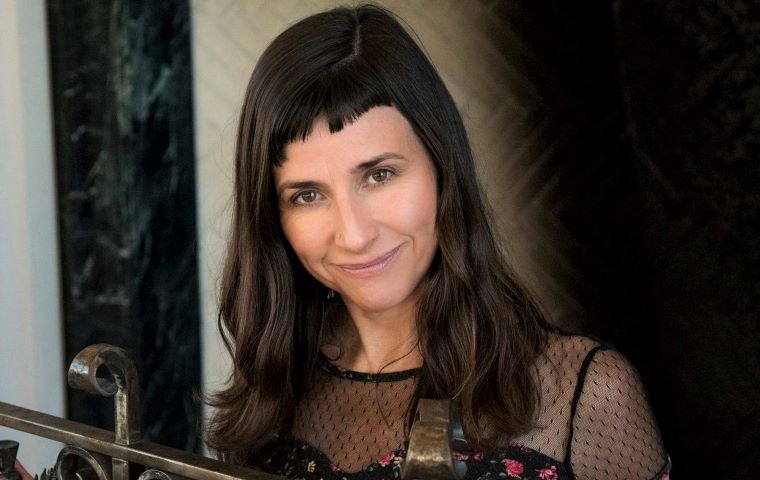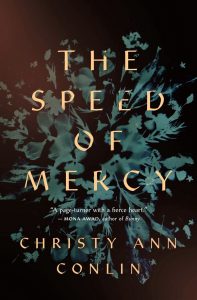
It has been a year since Celtic Life International last spoke with author Christy Ann Conlin. Like many of us, the Nova Scotia-based writer has spent much of her time adjusting to the world’s new normal. Unlike many of us, however, she has been juggling the Coronavirus pandemic with the impending publication of her fourth book, The Speed of Mercy.
“It has certainly been strange in a writerly capacity,” she tells Celtic Life International by phone. “One of the things that was difficult with this book was that we were rolling into the final line edits when everything began and – as the book was set in the summer of 2020 – that wasn’t going to work. So, I had to go through the whole book, do another revision to address COVID-19 and how it impacted the world. There is a subtle thread – a very tiny thread – that I had to weave into the storyline which required a huge amount of skill.”
Recently released, The Speed of Mercy is described as a “feminist tour de force,” combining the mystery of family secrets with the Celtic lore of the sea.
“People just focus on their last names or maybe their tartan,” says the scribe. “It seemed to me that the stories were sometimes misplaced in contemporary society. We have to remember where they came from and what they actually represent. There is a weight that comes to them – and a meaning – that can really root us in our Celtic ancestry. It is exciting to think about these stories as sacred – not just old stories about the Loch Ness Monster or St. Patrick or something – and ask ourselves ‘Where did these tales come form?’ Celtic culture is much more than just souvenirs and tourism stories.
“It is exciting to see the old stories coming back with new depth to them.”
 The Speed of Mercy explores a variety of subjects, including colonization, religion, Protestantism, and the unfair exploitation of the world’s most vulnerable people – especially women.
The Speed of Mercy explores a variety of subjects, including colonization, religion, Protestantism, and the unfair exploitation of the world’s most vulnerable people – especially women.
“There is the sexual exploitation of young women, and the disempowerment of older women. Often, what happens gets lost and what is nefarious there continues to exist.”
Conlin explains that the driving forces behind novel are its main characters.
“They are very usual women of all ages who are oven overlooked and completely marginalized. But they are ones who are the unlikely heroes in the book. The ones who see what other people don’t see. They are the ones who see the clues, and they are also the ones who see the danger. I felt an incredibly loyalty to those characters. They brought me back to sacredness and reverence. Everyday I would look at the ocean and I would think of them.”
She admits that writing a book amid the COVID-19 pandemic wasn’t an ideal scenario.
“I had a moment where I had to really dig deep and decide if I was going to do the work at hand or if I was going to freeze up. And I knew, pretty quick, that writing for me would be this salvation in a time of great uncertainty – I would write everyday, and that would be both my anchor and my lighthouse.”
The book has already received positive feedback, including a glowing review from Scotiabank Giller Prize shortlisted author Alix Ohlin, who called it “gripping, suspenseful and lyrically written.”
Conlin has also heard from a number of early readers.
“People are telling me that it is a page-turner, which is something that every writer likes to hear – they picked it up and couldn’t put it down. They said there were all of these twists that they didn’t see coming. I have had a lot of people say how inspiring and hopeful they found the book, and how it made them really re-evaluate their own life.”
She is excited to finally release the work into the world.
“I love the book and the story, and I love how cultural it is. I have learned a lot. It has taught me so much about the gift of life, the moment, the importance of community, the importance of kindness, the importance of being open and the importance of connecting with nature where you are – even if that is just at home and all you can see from the window are the clouds in the sky.”



















